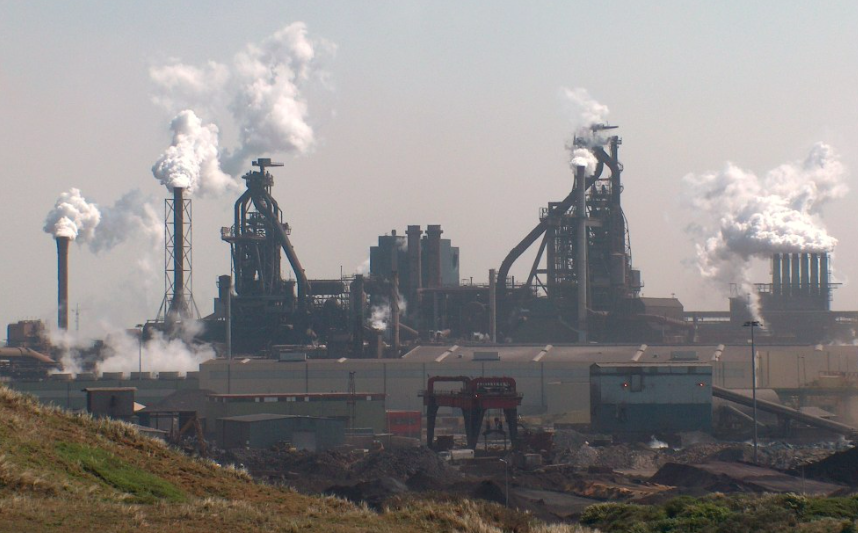Climate Change
Integrated steel mill in the Netherlands. The two massive towers are blast furnaces. (Courtesy: Wikipedia)
Click HERE for our latest articles.
News
Commentary
-
Jean-François Mouhot: Slavery and Climate Change: Lessons to be Learned
-
Brad Johnson: Meet the Man Who Predicted Global Warming
-
Bill McKibben: We’re Hot as Hell and We’re Not Going to Take It Any More
-
Juan Cole: Global Warming and al-Qaeda in the Greater Indian Ocean
- "Losing Our Cool": The high price of staying cool
-
Walter G. Moss: From an Economy of Consumption to an Economy of Sustainability
- Brian Hamilton: Making"Environmentalism" Revelant for Everyone
-
Walter Moss: Obama, Copenhagen, and the Global Warming Skeptics
- Every Day Is Earth Day?
- Jeff Biggers: 10 Environmental Disasters to Remember
- CNN: History of environmental movement full of twists, turns
- Steven A. Leibo: Can Historians Be Helpful in Addressing the Climate Crisis?
- Amy Kaleita and Gregory R. Forbes: Environmental Alarmism in Context
- Bruce Bartlett: Climate History
- Philip Ranlet: What Does Weird Weather Really Tell Us?
HNN Forum: Climate Change in Historical Perspective
By Rodney Huff
Mr. Huff is an HNN intern.
Have historians anything to add to the debate over global warming? That was a question we had in mind this past year after watching Al Gore's documentary, An Inconvenient Truth. It turns out the answer is a resounding: YES.
The following articles explore various historical aspects of the debate over global warming. Contributing to this forum are environmental historians who bring their expertise to bear on those aspects of global warming in which they are most interested and intellectually engaged. Since these articles are intended to spur further discussion and debate, readers are welcome to post comments.
The first article comes from Frank Uekoetter, an environmental historian and Dilthey Fellow with the Research Institute of the Deutsches Museum in Munich. Drawing upon his knowledge of the history of environmental regulation, Uekoetter chides environmentalists who seem content with merely “raising awareness” of the dangers posed by greenhouse gases, without delving into the more contentious issue of the policies needed to implement changes that will actually reduce these gases in the atmosphere. According to Uekoetter, the Kyoto Protocol shows very little promise of achieving this end, and environmentalists would be naïve to pin the salvation of the world on the U.S. agreeing to a regulatory scheme so prone to corruption.
Spencer Weart, Director of the Center for History of Physics at the American Institute of Physics, contributes the second article. Weart challenges the validity of arguments advanced by those who deny the threat of global warming. He suggests that denialists willfully misunderstand this threat and engage in sophistry to achieve the ideological imperatives of powerful interest groups. Weart goes on to describe his ongoing effort to educate the public through the development of a website detailing the history of research on climate change.
Matt Chew, a Ph.D. candidate at Arizona State University, contributes the final piece. Chew's focus is on the ways global warming is causing the redistribution of plant and animal species. According to Chew, this redistribution creates new selective pressures in localities infiltrated by “invasive” species. Starting from the premise that life on earth began at one time and in one place, Chew suggests that all species were at one time invasive before becoming established in their familiar host environments; thus, invasive is a relative term, applied at all times in accordance with human valuations. Chew also contemplates what the future will be like as the average global temperature continues to rise. Drawing upon his knowledge of past “infestations,” or redistributions, Chew arrives at a scenario he considers to be all too familiar.
